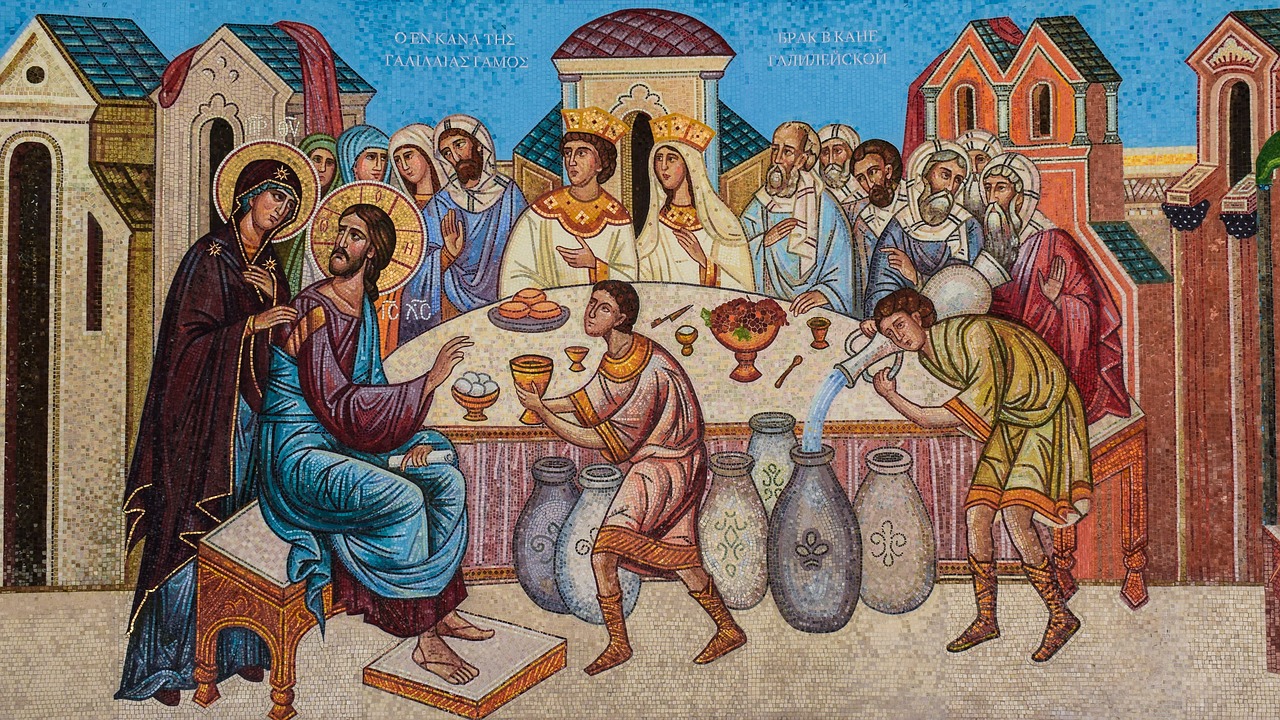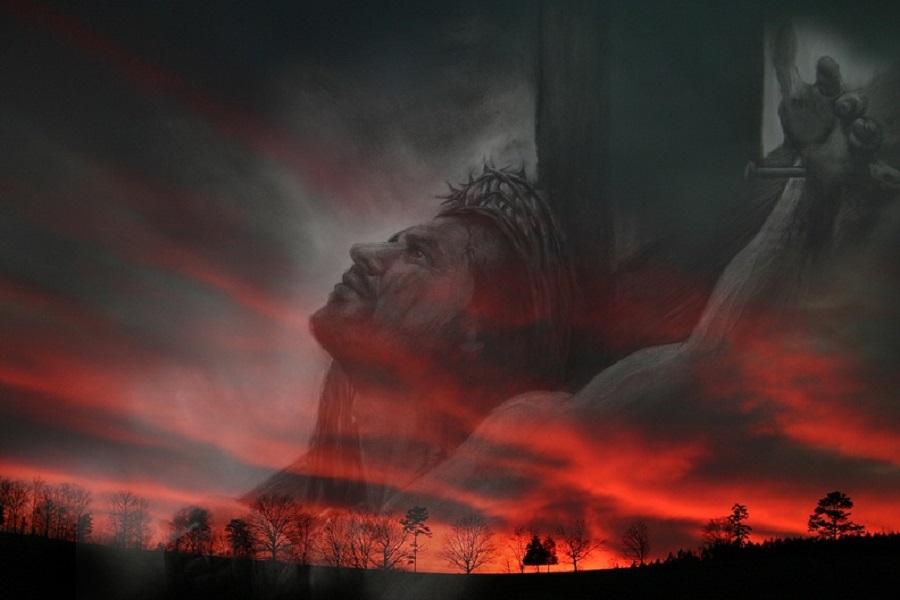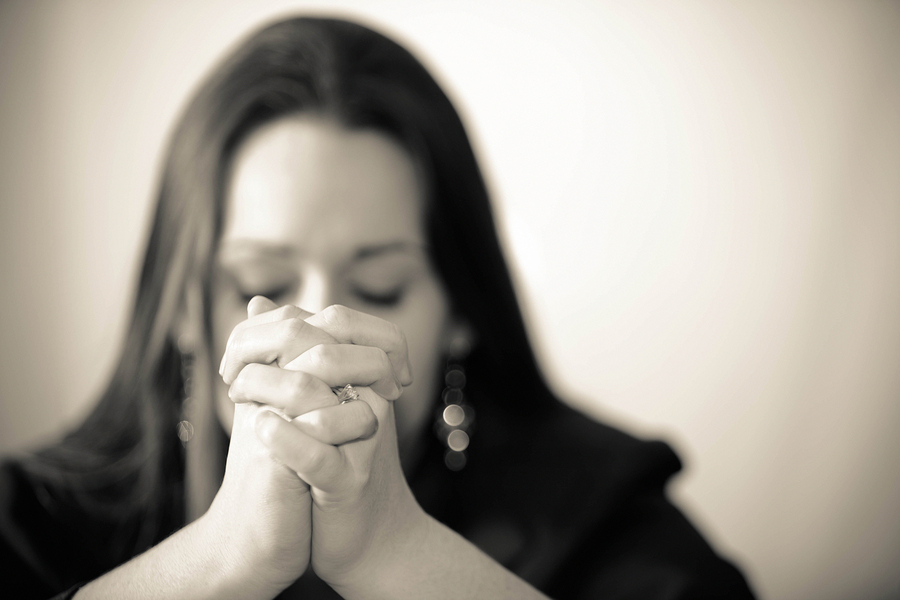
Living Justly
10-25-2020Weekly Reflection“You give that back right now!” How many of us have heard that line, probably more than once, as we were growing up? We come home with the trophy of what we thought was a really sweet deal, only to have our parents undo our profits by making us return the spoils. They had a different idea of what constituted a “fair trade agreement.” Justice in our dealings with others continues to be an important measure of our character, and like a good parent, God cares very much about how we treat each other and about how others treat us. God hears the cry of the poor, and answers the call of the oppressed. God’s beloved children are not to behave like bullies.

In God Alone
10-18-2020Weekly ReflectionIsaiah speaks to us today of Cyrus, King of Persia, anointed by the Lord. God calls Cyrus by name and leads him in service to the Israelites. In this passage we hear that it is the Lord who gives Cyrus his title, who arms him against his enemies, and who opens doors and unbars gates before him. And God does all of this so that the people will know that “I am the Lඈඋൽ,” and that “there is none besides me” (Isaiah 45:6). Paul opens his letter with essentially the same notion—that in God alone we find our grace and peace. Paul also gives thanks to God on our behalf, calling to mind our work of faith, hope, and love. And in the familiar Gospel reading, Jesus tells the Pharisees to give to Caesar what is Caesar’s and to God what is God’s.

God Revealed to the Nations
10-11-2020Weekly ReflectionWhat wonderful images we have today of the reign of God! Isaiah speaks to us of a great feast—a heavenly feast—a feast of abundance with rich foods and choice wines. It is the Lord’s own affair, Isaiah explains, when God will unite all nations, dry every tear, and destroy death forever. Then, too, will the entire earth rejoice in the Lord and bask in God’s saving grace.
Jesus speaks of heaven in terms of a feast as well. Here, the kingdom of heaven is likened to a king’s wedding feast given for his son. This is a feast of abundance also, with the fattened cattle prepared just so. But many of the people invited don’t want to come, so the king invites anyone who would honor his son by their presence there. And Paul tells us that whether we live abundantly or in humble circumstances, we can do all things in the Lord who strengthens us.

The Gift of the Reign of God
10-04-2020Weekly ReflectionMatthew’s Gospel today expands on Isaiah’s ballad considerably. A comparison with the same story in Mark’s Gospel clearly shows us that here the author is busy teaching this community of Jewish Christians: “This is a story about Israel a long time ago; this is also a story about Jesus and the skeptical leaders.”
Jesus as much as told these Jewish leaders that they were the tenants who first stoned their own prophets. And he told the leaders they were the tenants who would soon even dispose of him— Jesus—and, in doing so, would forfeit their privileged place of presenting to the world the promised Messiah.
READ MORE
Familiar Insights
09-27-2020Weekly ReflectionSpiritual teachers tend to repeat themselves, and to repeat other teachers. Maybe there really aren’t that many different truths to tell. Just a lot of slow, sleepy human beings—like us—who need to hear the basics over and over. Consider today’s readings.
People complain God isn’t “fair,” and Ezekiel answers that God is more than fair. People choose their own fates, and people can change. Even evildoers can turn, do right, and live. “Actions speak louder than words.” A fresh new insight? Hardly.
Paul tells the Philippians that he would truly be encouraged if those who claimed to be believers would, in fact, look to others’ interests and not their own. “The proof of the pudding is in the eating.” A novel idea? I don’t think so.
READ MORE
Direction
09-20-2020Weekly ReflectionIsaiah tells us something that we already know, and yet seem to forget every now and then. He tells us, essentially, that God is God and we are not. When we’re confused and troubled and can’t figure everything out, it might be wise to recall Isaiah speaking on the Lord’s behalf and explaining that God—who is on a much more, well, Godly wavelength than we are—moves in ways we can’t even imagine.
Saint Paul, by comparison, has everything figured out. Kind of. At least he understands his calling in life—to magnify Christ in everything he does. That should give all of us the direction we need. Jesus gives us direction, too, explaining to us once again in the parable of the workers in the vineyard that the last will be first, and the first, last.

Forgiveness
09-13-2020Weekly ReflectionNearly ten years before, a son and father had parted ways when the business they shared went bankrupt. The son blamed the father. They did not speak to each other again. Then the father became seriously ill. The mother called the son and told him he had better come soon. The son walked sheepishly into the hospital room. The father motioned his son to him and whispered: “Did you ever think you could do anything that would keep me from loving you?” Resentment and anger are foul things, the first reading from Sirach tells us. Remember the last things. Stop hating. Live by the commandments. As St. Paul writes to the Romans, we are to live for the Lord and die for the Lord. Jesus’ parable in today’s Gospel reminds us of God’s compassion. The immense sin of humanity has been forgiven and stricken from the record. We are to forgive others in the same way.

Welcome Luis Pablo Ochoa Escárrega to St. George
09-13-2020Pastor's LetterDear St George parishioners,
I am so thankful to all of you for being so welcoming. This is my third week in the parish, but I already feel like I have been here for a long time. I was born in Nogales, in the state of Sonora, Mexico. I am 34 years old, the oldest of four siblings. I have one sister and two brothers. I also have two nieces and two nephews. I am close to my family, where I received my faith and religious values. Without a doubt, home has been my first seminary, and I am infinitely grateful to my parents for teaching me to become a man of faith and good values.
I got all my education in my hometown, and I was able to work as a schoolteacher in a catholic school before joining the seminary. At the age of 15, I also joined the youth group in my home parish. I was a little hesitant at the beginning, but this group would change my perspective on the Church and would bring me closer to God. At this time, I also met a young and joyful priest who with his love for his ministry and vocation inspired me to start thinking about being a parish priest.
READ MORE
A Message of Love
09-06-2020Weekly ReflectionIn the final verses of today’s Gospel reading Jesus says that when two or three are gathered in his name, “there am I in the midst of them” (Matthew 18:20). So we understand that fraternal correction is always undertaken with Jesus present to us.
Likewise, encouraging the good in others is not only the right thing for us to do, it is a necessity. The Lord tells the prophet Ezekiel that if he “does not speak out” to dissuade a person from evil, then he too will be held responsible.
We live in a “do your own thing” age when moral objectivity is often ignored. Clearly when the message we share with others is one of love, our motives cannot ever be misinterpreted. As St. Paul writes, “Love does no evil to the neighbor; hence, love is the fulfillment of the law” (Romans 13:10).

Familiar Insights
09-27-2020Weekly ReflectionSpiritual teachers tend to repeat themselves, and to repeat other teachers. Maybe there really aren’t that many different truths to tell. Just a lot of slow, sleepy human beings—like us—who need to hear the basics over and over. Consider today’s readings.
People complain God isn’t “fair,” and Ezekiel answers that God is more than fair. People choose their own fates, and people can change. Even evildoers can turn, do right, and live. “Actions speak louder than words.” A fresh new insight? Hardly.
Paul tells the Philippians that he would truly be encouraged if those who claimed to be believers would, in fact, look to others’ interests and not their own. “The proof of the pudding is in the eating.” A novel idea? I don’t think so.
READ MORE
Direction
09-20-2020Weekly ReflectionIsaiah tells us something that we already know, and yet seem to forget every now and then. He tells us, essentially, that God is God and we are not. When we’re confused and troubled and can’t figure everything out, it might be wise to recall Isaiah speaking on the Lord’s behalf and explaining that God—who is on a much more, well, Godly wavelength than we are—moves in ways we can’t even imagine.
Saint Paul, by comparison, has everything figured out. Kind of. At least he understands his calling in life—to magnify Christ in everything he does. That should give all of us the direction we need. Jesus gives us direction, too, explaining to us once again in the parable of the workers in the vineyard that the last will be first, and the first, last.

Forgiveness
09-13-2020Weekly ReflectionNearly ten years before, a son and father had parted ways when the business they shared went bankrupt. The son blamed the father. They did not speak to each other again. Then the father became seriously ill. The mother called the son and told him he had better come soon. The son walked sheepishly into the hospital room. The father motioned his son to him and whispered: “Did you ever think you could do anything that would keep me from loving you?” Resentment and anger are foul things, the first reading from Sirach tells us. Remember the last things. Stop hating. Live by the commandments. As St. Paul writes to the Romans, we are to live for the Lord and die for the Lord. Jesus’ parable in today’s Gospel reminds us of God’s compassion. The immense sin of humanity has been forgiven and stricken from the record. We are to forgive others in the same way.

Welcome Luis Pablo Ochoa Escárrega to St. George
09-13-2020Pastor's LetterDear St George parishioners,
I am so thankful to all of you for being so welcoming. This is my third week in the parish, but I already feel like I have been here for a long time. I was born in Nogales, in the state of Sonora, Mexico. I am 34 years old, the oldest of four siblings. I have one sister and two brothers. I also have two nieces and two nephews. I am close to my family, where I received my faith and religious values. Without a doubt, home has been my first seminary, and I am infinitely grateful to my parents for teaching me to become a man of faith and good values.
I got all my education in my hometown, and I was able to work as a schoolteacher in a catholic school before joining the seminary. At the age of 15, I also joined the youth group in my home parish. I was a little hesitant at the beginning, but this group would change my perspective on the Church and would bring me closer to God. At this time, I also met a young and joyful priest who with his love for his ministry and vocation inspired me to start thinking about being a parish priest.
READ MORE
A Message of Love
09-06-2020Weekly ReflectionIn the final verses of today’s Gospel reading Jesus says that when two or three are gathered in his name, “there am I in the midst of them” (Matthew 18:20). So we understand that fraternal correction is always undertaken with Jesus present to us.
Likewise, encouraging the good in others is not only the right thing for us to do, it is a necessity. The Lord tells the prophet Ezekiel that if he “does not speak out” to dissuade a person from evil, then he too will be held responsible.
We live in a “do your own thing” age when moral objectivity is often ignored. Clearly when the message we share with others is one of love, our motives cannot ever be misinterpreted. As St. Paul writes, “Love does no evil to the neighbor; hence, love is the fulfillment of the law” (Romans 13:10).

The Cross of Jesus
08-30-2020Weekly ReflectionThe perception of a cross changed dramatically after Jesus’ crucifixion. Before that event, death on a cross was not only horrible, it was degrading. It was a penalty reserved only for the most wretched of criminals. The word “glory” would not have found its way into the same sentence containing the word “cross.” But all that changed with Jesus. Over time, believers began to venerate and honor the cross. They painted, sculpted, and carved images of it. Many lost their own lives for their association with it. Today our reverence for and relationship with the cross recalls little of the contempt originally associated with it. As it has been through the ages, it is our perception of the cross that determines how we follow Jesus.

Trust
08-23-2020Weekly ReflectionKeys hold great significance for those who carry them. They represent the trust and authority of the owner when given to another person. We may give our house key to a trusted friend to take care of our matters while we are away. We may give keys to someone responsible for maintaining or working in a particular building. Keys to vehicles are given to people who have proven themselves responsible drivers. The readings today focus on this kind of trust—the trust that conveys authority and responsibility. In the first reading, the symbol is specifically that of a key; but the second reading and the Gospel also speak of trust and leadership as they refer to the earthly church that Jesus established.

Why Pray?
08-16-2020Weekly ReflectionThe “foreigners” as Isaiah calls them, the “Gentiles” as Paul calls them, or the “Canaanites” as Matthew calls them are called to worship the one true God in prayer. As we listen to today’s readings, perhaps we are tempted to ask: Why pray? The question is rhetorical; it is tantamount to asking why should friends talk to one another or people in love kiss one another. Prayer is a way of relating to God, a way of talking to God. The apostles had the opportunity to talk to Jesus in the flesh. We have the opportunity to talk to Jesus Christ in prayer. Our relationship with him must be enthusiastic; it cannot be faint-hearted. John Donne, a fifteenth-century poet, knew what the qualities of good prayer were. Donne asks God to treat him differently from most Christians. The poet does not want God to merely “knock, breathe, shine, and seek to mend,” but also to “break, blow, burn, and make me new” (Holy Sonnets, XIV).
READ MORE
Welcome Back!
08-09-2020Weekly ReflectionReverend Monsignor Domenico C. PintiWe welcome our parishioners back. It is a gift to receive the sacraments. Through the Diocesan Guidelines, the Center for Disease Control, for public safety, the common good and with a delicate balance, St. George will be observing the following guidelines. Please note that guidelines can be changed at any time to ensure reasonable safety of our parishioners, ministers and priests.
- Sunday Mass obligation is suspended indefinitely for all persons living in or visiting in the Tucson Diocese.
- Vulnerable parishioners (age 65+ or with a chronic health condition) are strongly urged to remain at home. Likewise those feeling ill in any way are advised in the strongest sense to remain home and view the Mass online and receive Spiritual Communion. READ MORE

Our Deepest Needs
08-02-2020Weekly ReflectionThe word of God serves up a tremendous feast for us today. Isaiah beckons all who hunger and thirst to come to the Lord for satisfaction. The psalmist cries out, “The hand of the Lord feeds us; he answers all our needs” (Psalm 145:16). Saint Paul tells us that nothing can separate us from the love of God. Finally, in the Gospel, we hear the story of the miraculous feeding of over five thousand people from a mere five loaves and two fish. Most of us have our material needs met on a dayto-day basis. These scriptures, nevertheless, have much to say to the contemporary believer. We must ask ourselves, “Where are my deepest hungers? Where are my thirsts?” After material needs are satisfied and, in some cases, over-satisfied, many people still experience a deep longing for spiritual balance and well-being. As the loaves and fish are multiplied in today’s Gospel, perhaps our prayer can be a longing for the satisfaction of the deepest needs that only God can fill.